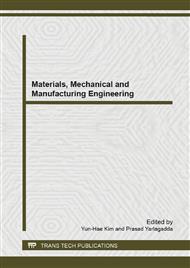p.691
p.695
p.703
p.708
p.712
p.719
p.725
p.729
p.733
Study on Data Compression Algorithm Based on Semantic Analysis
Abstract:
As a lossless data compression coding, Huffman coding is widely used in text compression. Nevertheless, the traditional approach has some deficiencies. For example, same compression on all characters may overlook the particularity of keywords and special statements as well as the regularity of some statements. In terms of this situation, a new data compression algorithm based on semantic analysis is proposed in this paper. The new kind of method, which takes C language keywords as the basic element, is created for solving the text compression of source files of C language. The results of experiment show that the compression ratio has been improved by 150 percent roughly in this way. This method can be promoted to apply to text compression of the constrained-language.
Info:
Periodical:
Pages:
712-716
DOI:
Citation:
Online since:
November 2013
Authors:
Price:
Сopyright:
© 2014 Trans Tech Publications Ltd. All Rights Reserved
Share:
Citation:


